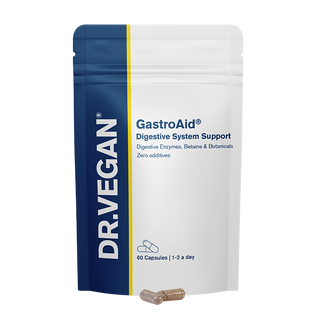What is acid reflux?

Acid reflux is a common digestive condition that affects millions of people worldwide, including a significant portion of the UK population. Understanding its causes, symptoms, and effective management strategies can greatly improve quality of life for those who suffer from this condition. This article explores the key causes and breaks down the main symptoms.
What is acid reflux?
Acid reflux occurs when stomach acid flows back up into the oesophagus, causing irritation and discomfort. This happens when the lower oesophageal sphincter (LES), a muscle that acts as a valve between the stomach and oesophagus, weakens or relaxes improperly. Acid reflux can range from occasional discomfort to chronic gastro-oesophageal reflux disease (GORD), which requires medical attention. In the UK, it is estimated that up to 20% of the population experiences symptoms of acid reflux at least once a week. While many cases are mild and manageable, severe or frequent acid reflux can significantly impact daily life, making effective management essential. Learn more about the most common GI conditions.
What are the key causes of acid reflux?
Several factors contribute to the development of acid reflux. Understanding these causes can help identify triggers and minimise symptoms. Key causes include:
- Dietary habits: Consuming large meals, eating close to bedtime, or indulging in trigger foods can lead to acid reflux. Some people find that keeping a food intake diary can help to identify your trigger foods. Read more about the best and worst foods for acid reflux.
- Obesity: Excess weight increases pressure on the stomach, making acid reflux more likely.
- Hiatal hernia: This condition occurs when part of the stomach pushes through the diaphragm, affecting the function of the LES.
- Smoking: Smoking weakens the LES and increases stomach acid production. You may also enjoy reading about whether vaping can cause anxiety.
- Medications: Certain medications, such as anti-inflammatory drugs, muscle relaxants, and some antidepressants, can trigger acid reflux.
- Pregnancy: Hormonal changes and increased abdominal pressure during pregnancy often lead to acid reflux. You may enjoy reading our nutritionist advice for a healthy pregnancy.
- Stress: Stress can exacerbate acid reflux by impacting digestion and increasing sensitivity to acid.
What are the key symptoms of acid reflux?
Recognising the symptoms of acid reflux is crucial for proper management. Common symptoms include:
- A burning sensation in the chest (heartburn), often after eating or when lying down.
- Regurgitation of sour or bitter-tasting acid into the throat or mouth.
- Difficulty swallowing (dysphagia).
- Chronic cough or throat irritation.
- Hoarseness or a sore throat.
- A sensation of a lump in the throat.
If symptoms occur frequently or interfere with daily life, it’s essential to consult a healthcare professional for evaluation and treatment. By understanding the causes, symptoms, and effective management strategies, you can take steps towards reducing discomfort and improving your quality of life, making acid reflux more manageable and less disruptive. You may be interested in learning about GORD, a more severe form of acid reflux.
View our range of award-winning probiotics, vitamins and supplements.
You may also enjoy reading:




















